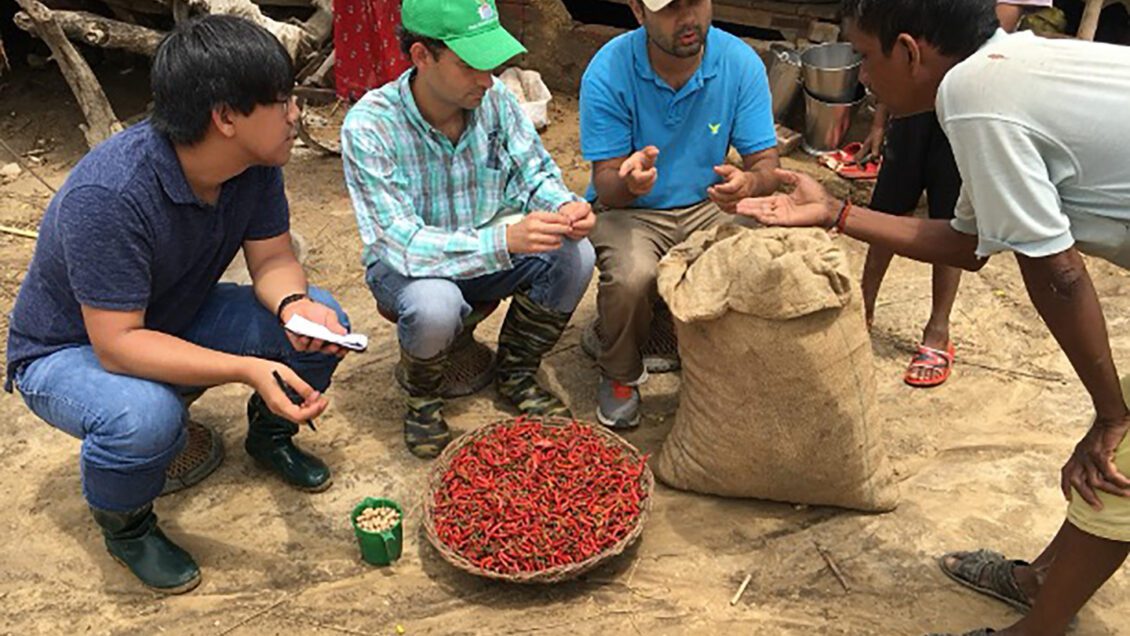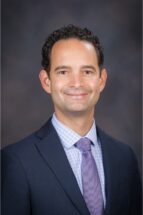
It starts with the farmers. Farmers create the foundations for our food systems. South Carolina and regional farmers will be key partners in this endeavor.
Jagger Harvey, director, Clemson Global Research Initiative
A new Global Research Initiative based in Clemson’s College of Agriculture, Forestry and Life Sciences (CAFLS) that is working to help solve some of the world’s most urgent food security challenges has appointed its first director.
Food systems expert Jagger Harvey has been appointed to spearhead the innovative programs and partnerships needed to help solve current and future food security problems.
As director of the initiative, Harvey will develop a research strategy that addresses key challenges and drives agriculture- and forestry-led economic development in South Carolina and worldwide.

He also will work to expand international efforts, increase funding sources, develop new research and food system partnerships, and promote CAFLS faculty. In addition, Harvey will coordinate the development of new global agriculture and sustainability research programs.
South Carolina has a diverse agri-food system that models many threatened communities around the country and across the globe. Both its geographic location and the University’s strong research portfolio uniquely position Clemson to drive innovative solutions to some of the most urgent food security challenges the world faces today.
“Through this initiative, we will expand University and CAFLS resources, successes, and prominence in global research and student experience to make a global impact,” Harvey said. “We will partner with business, institutions and individuals across the globe to determine solutions to address today’s food security challenges.”
This initiative is just one example of global research and experiences available at Clemson University. For information about these programs, contact the Clemson Office of Global Engagement.
Leading Clemson’s Global Research Initiative
Paula Agudelo, CAFLS associate dean and Clemson University Experiment Station director, led the charge to develop the Global Research Initiative.
“We are very excited to have Dr. Harvey direct this program,” Agudelo said. “He brings a wealth of knowledge and experience that we believe will position Clemson University and South Carolina at the forefront of global research.”
Growing up in Haiti and Washington state, Harvey began to see the effects of global agricultural challenges and a need for solutions at a young age. In college, he studied under prominent plant scientists David Gilchrist at the University of California Davis and Sir David Baulcombe at Cambridge University and The Sainsbury Laboratory in the United Kingdom.
Harvey is now a food systems expert with over three decades of research experience and 15 years of experience leading international teams. He has worked on agricultural challenges in Africa, Asia and the Americas.
His research focuses on determining how to grow nutritious, safe and affordable crops that benefit both human health and the environment, as well as involving stakeholders to address global issues.
“The global population growth, primarily in developing countries, will increase demand for food production by over 50% by 2050,” Harvey said. “Failure to meet that need will worsen food insecurity, fuel social unrest, and further erode global and U.S. security.”
A new era for the Land-Grant system
Harvey comes to Clemson from Kansas State University, both land-grant universities. At Kansas State he led two U.S. Agency for International Development (USAID)-funded Feed the Future Innovation Labs: Reduction of Post-Harvest Loss (PHLIL), and Climate Resilient Cereals.
Under his leadership, PHLIL supported research to identify post-harvest loss issues and develop innovations to boost food and nutritional security. Harvey and his teams worked in Bangladesh, Ethiopia, Ghana, Guatemala, Honduras, Senegal and Nepal.
He views the Clemson position as a chance to introduce a new era to the land-grant system by fostering expanded collaborations with other countries. The global research programs will draw from the three-fold mission of the Land-Grant University System – teaching, research and Cooperative Extension.
“The land-grant system has historically contributed to global food security and holds vast untapped potential to contribute so much more,” Harvey said. “Working across global food systems, I want Clemson to pioneer new models for the next generation of partnerships, especially with developing countries.”
South Carolina produces many of the same crops and livestock, in a similar climate, as many African, Latin American, and Asian countries. This makes it an ideal place for research to address critical food security challenges abroad and benefit the state as well.
“It starts with the farmers,” Harvey said. “Farmers create the foundations for our food systems. South Carolina and regional farmers will be key partners in this endeavor.”
This is where the Clemson Cooperative Extension Service plays a key role.
“Clemson Extension agents work with South Carolina residents every day,” Harvey said. “I will talk to the Extension agents to learn what they’re doing and how they’re engaging different actors across the food system—from farmers to consumers. Together, we will create a plan that will raise Clemson and South Carolina as a leader in global food security and sustainability research and bring benefits back home to our state.”
Get in touch and we will connect you with the author or another expert.
Or email us at news@clemson.edu
